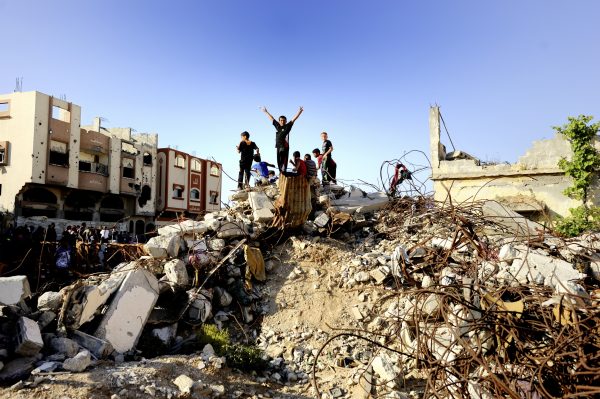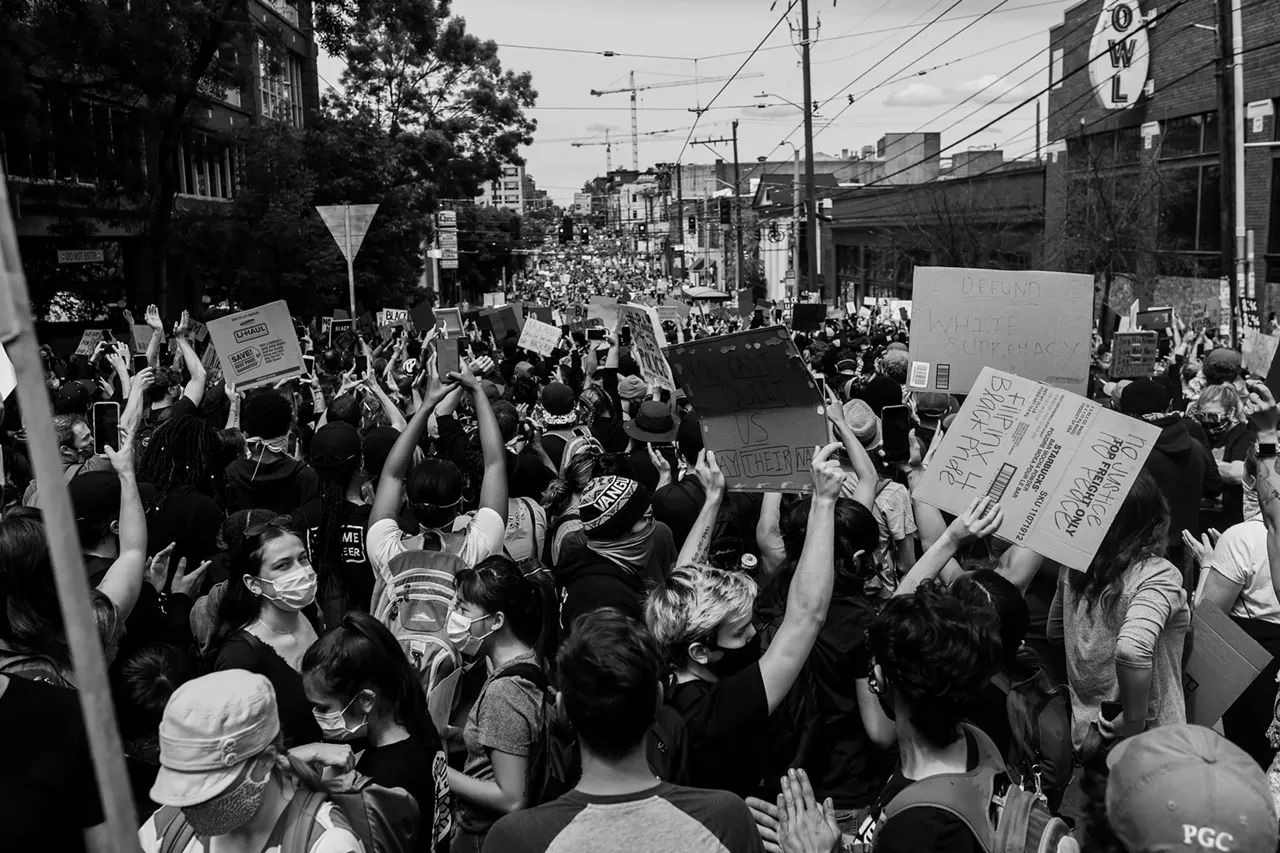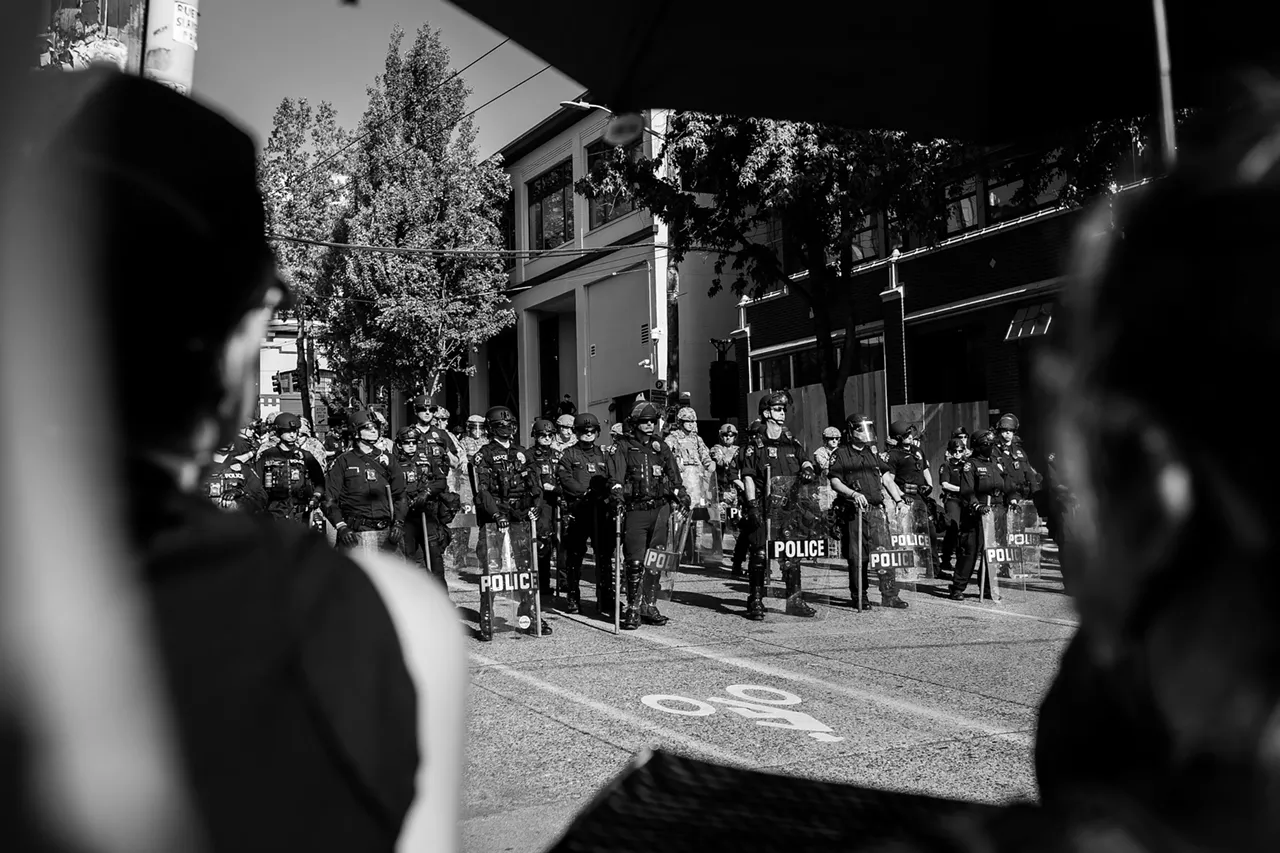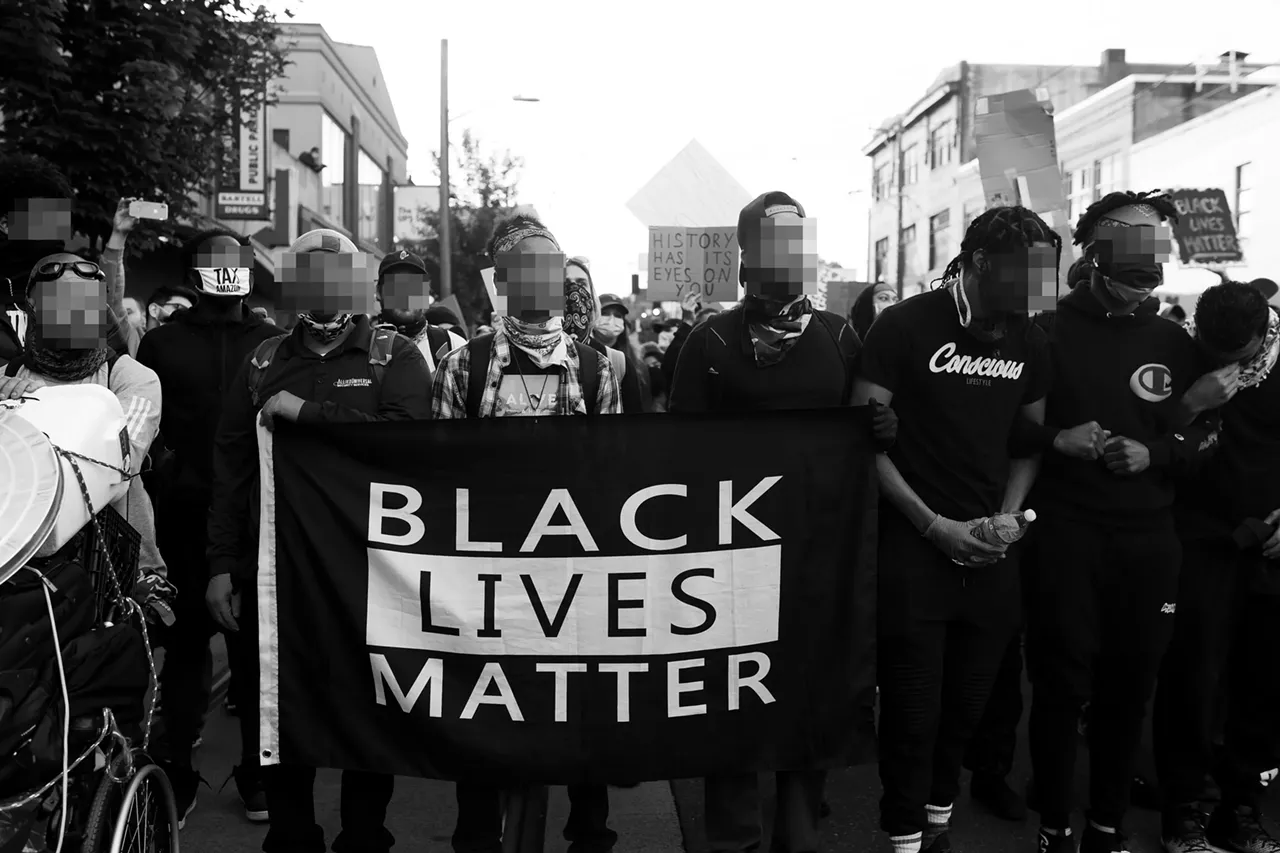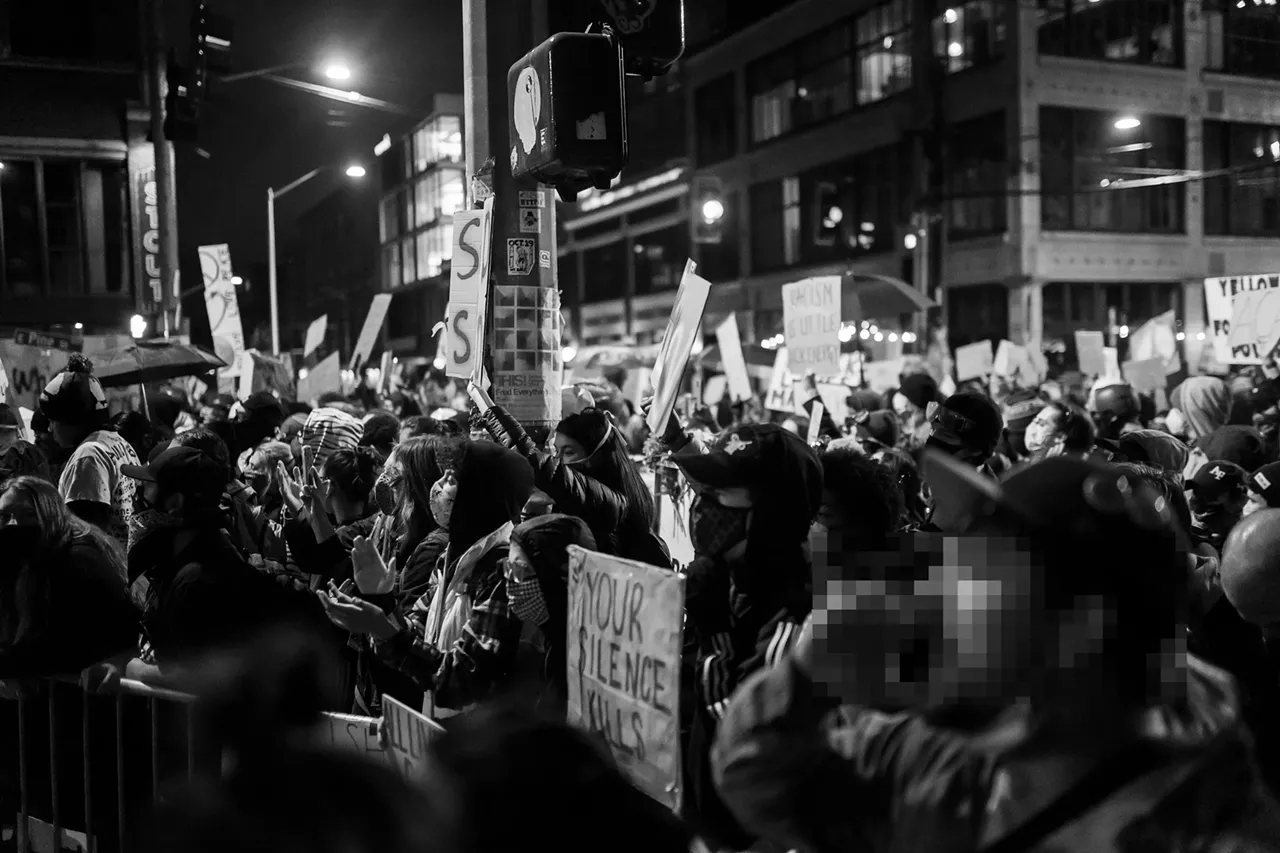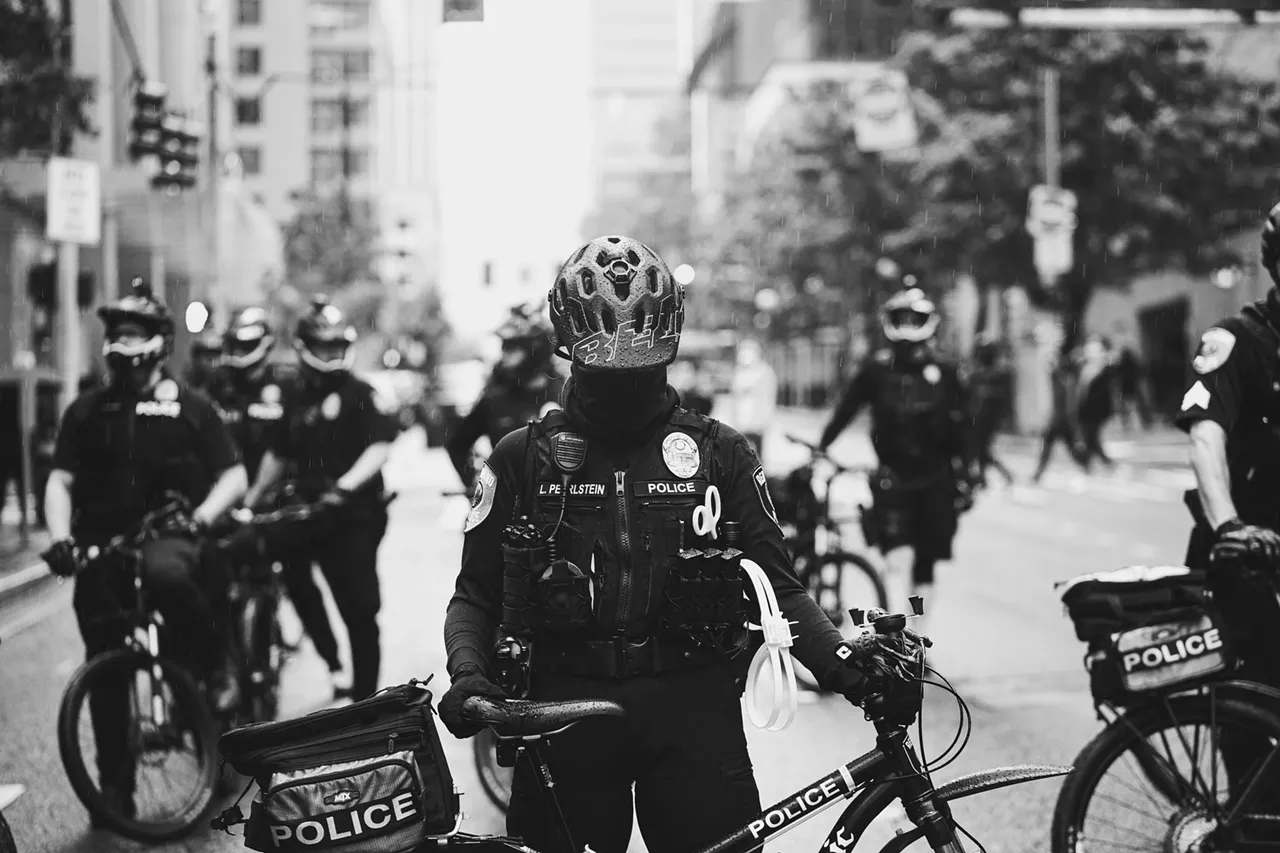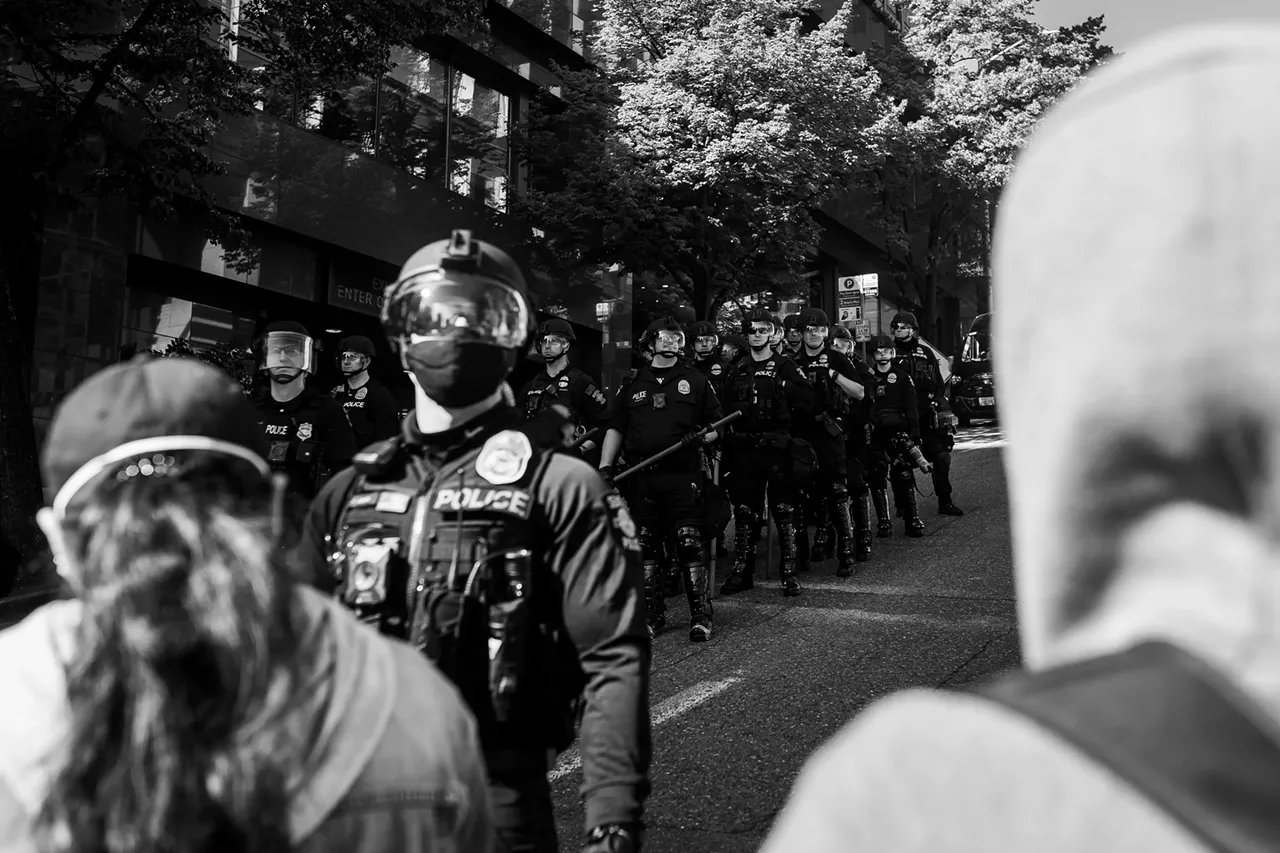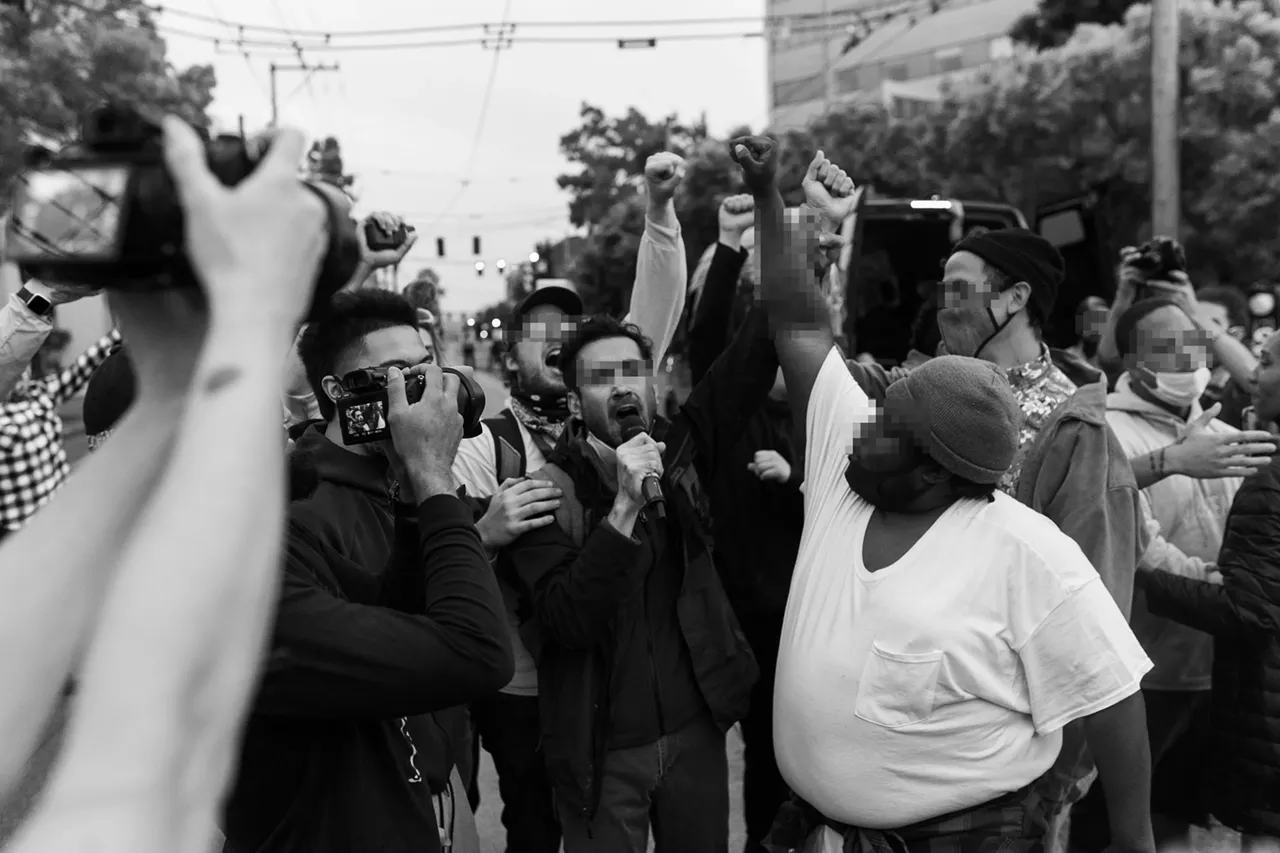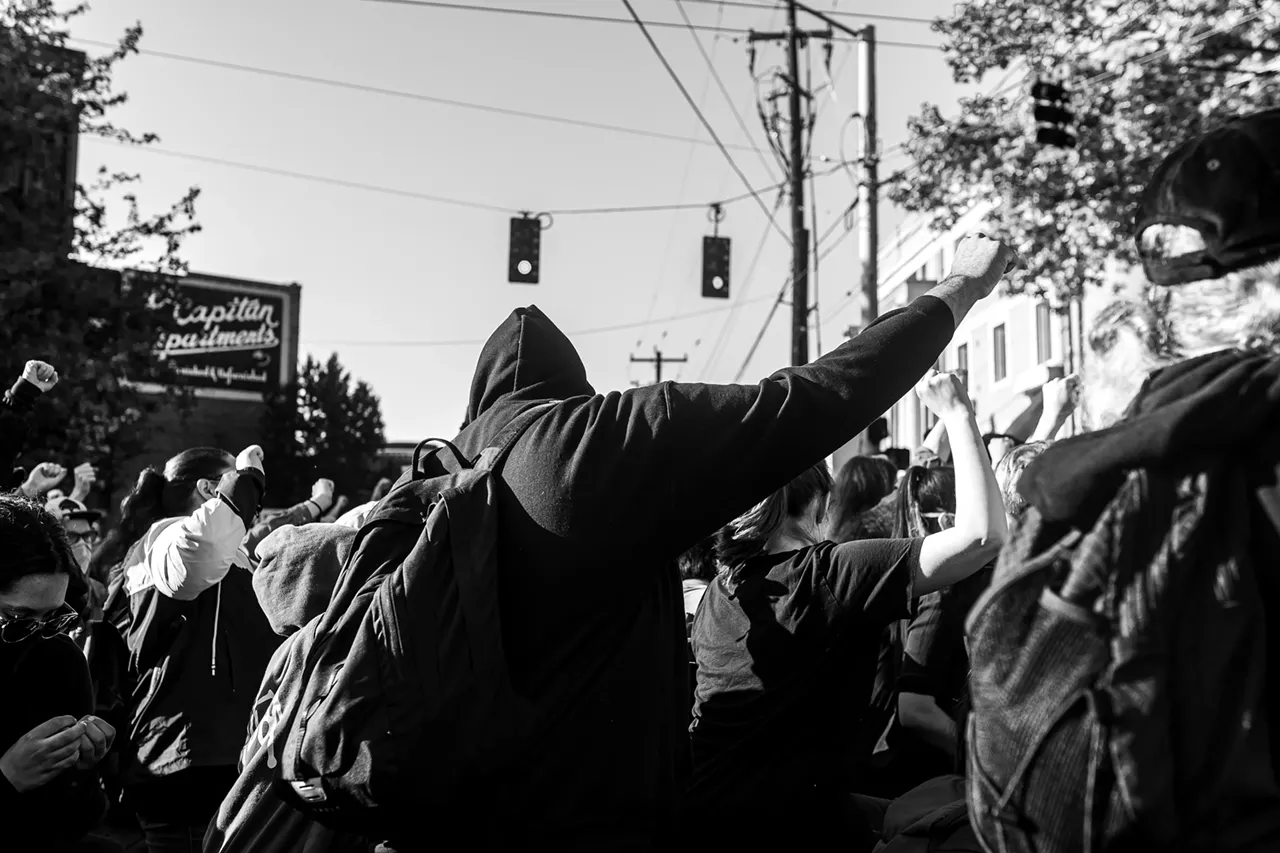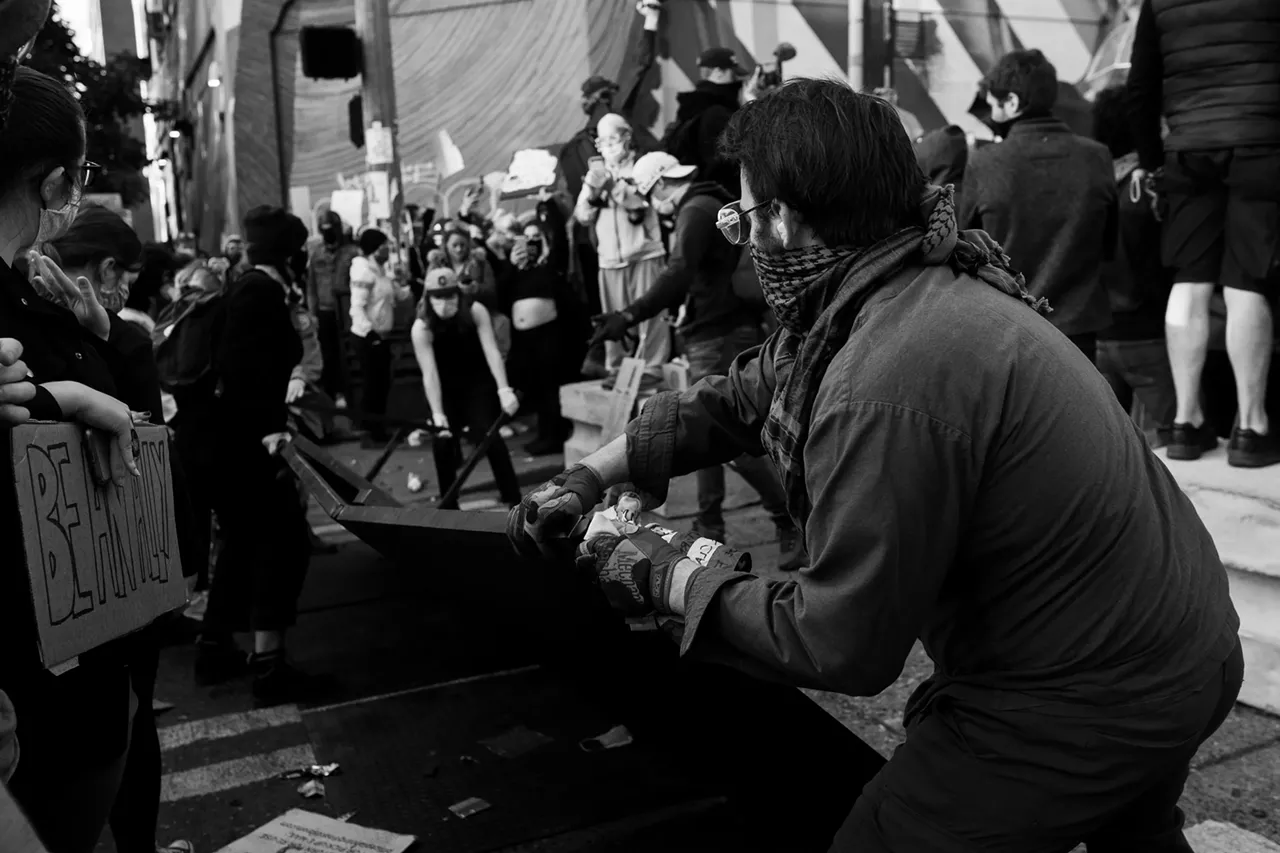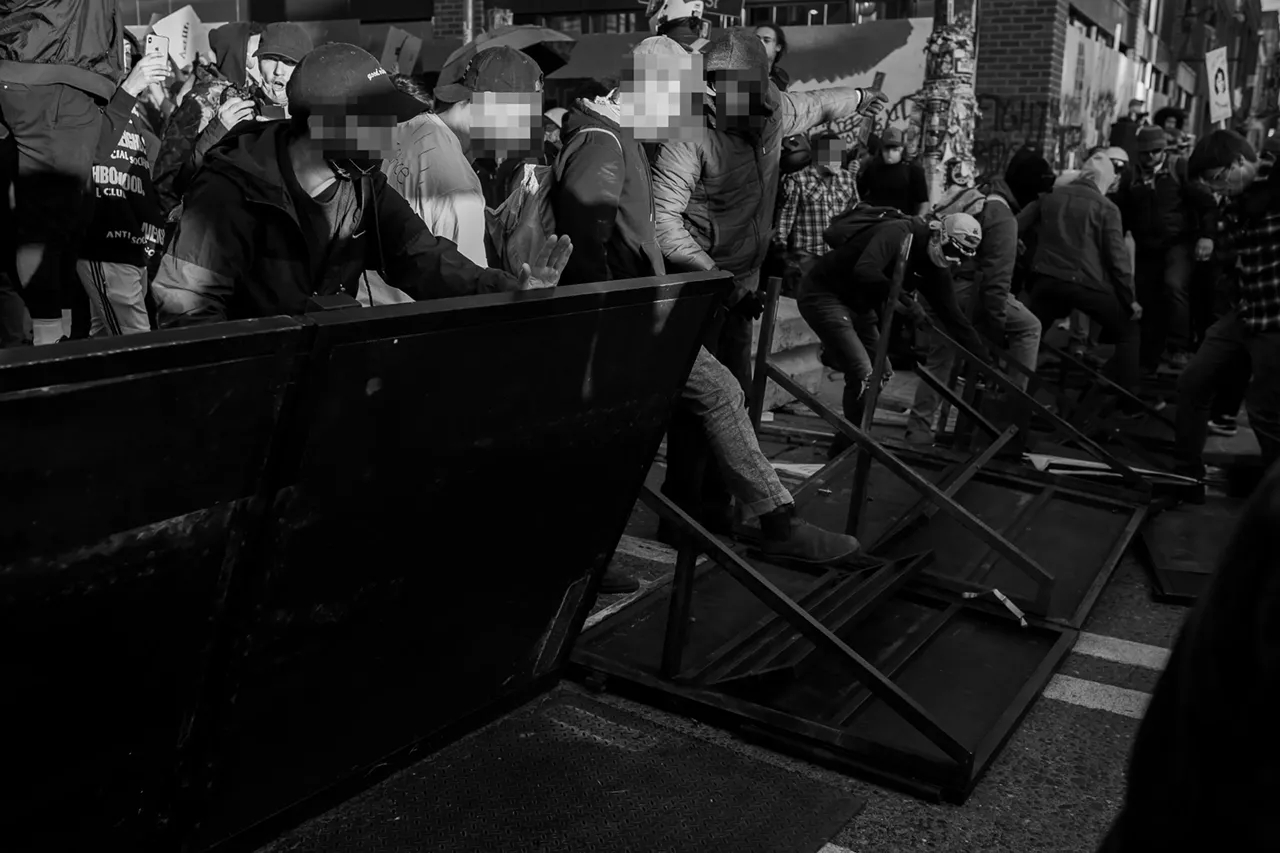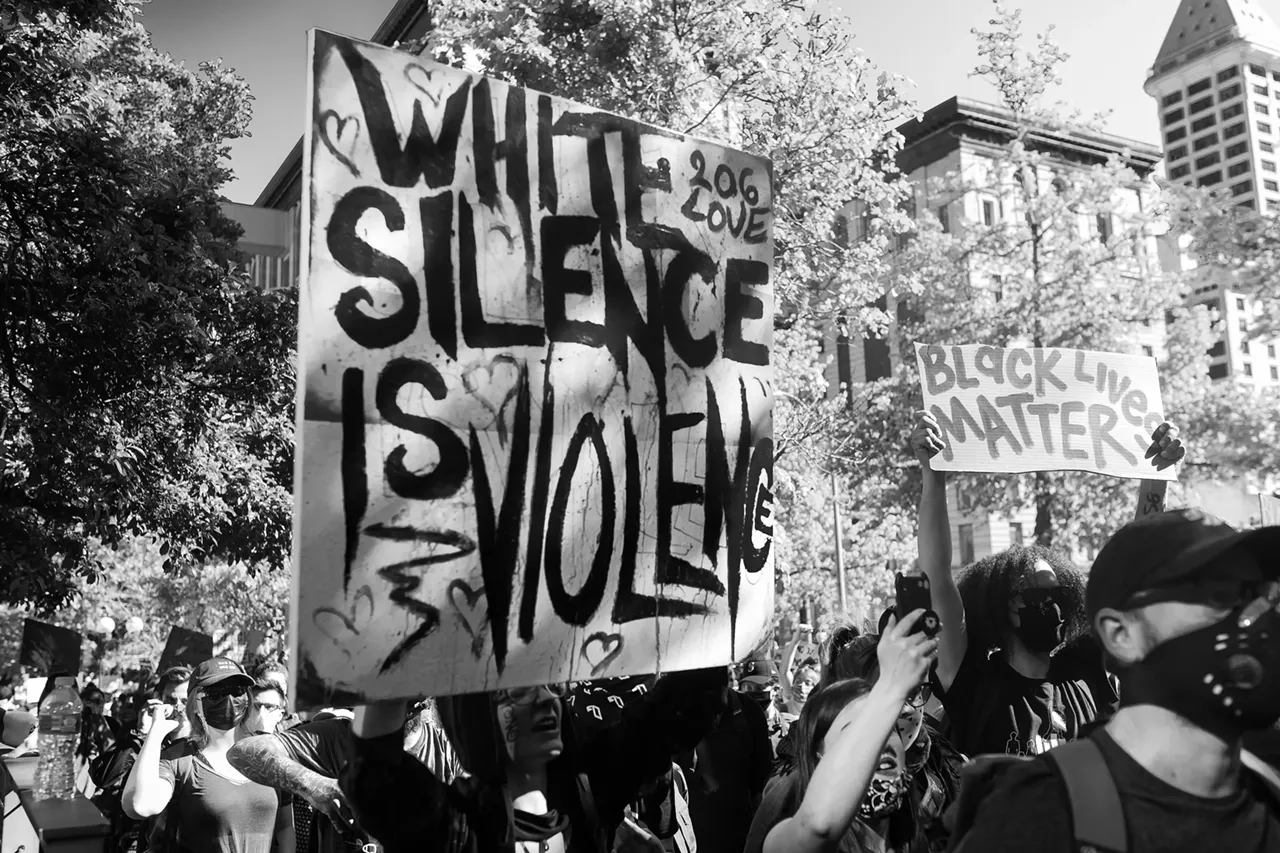They missed 4/20 but Capitol Hill pot shop The Reef was back open in time to celebrate Memorial Day weekend.
The E Olive Way at Denny shop reopened this weekend after three months and $300,000 of work to rebuild and reinforce its 1926-era storefront. The protective sidewalk bollards are back in place. The business also continued to pay employees through the closure.
“When our Capitol Hill location was forced to close, our top priority was taking care of our team,” David Olivas, director of operations at The Reef, said in the announcement of the grand reopening. “We were able to keep our staff on payroll so no one lost income from hours, but their ability to earn tips was impacted.”
CHS reported here in February after a group of thieves used a car to ram the storefront, partially ripping open the 99-year-old masonry building in a middle of the night burglary, the third time, The Reef says, it has been targeted.
The damage left the building leaning precariously and forced the temporary closure of Denny until emergency permits to stabilize the property were secured.
Smash and grab pot shop break-ins continued to plague the pot industry in Seattle but the cash-only businesses aren’t being targeted for the reasons you might think. Former policy director for Seattle City Councilmember Joy Hollingsworth and co-owner of the Hashtag Cannabis shops Logan Bowers says cash is not the issue and that most stores aren’t being targeted for their cash any longer. “The problem is it’s so easy to steal cars, the perceived risk is so low (rarely caught), and maybe COVID made them crazy, they’ll do it for trivial amounts of product,” Bowers said.
Police were looking for the suspects and two SUVs reported leaving the scene of The Reef break-in and likely involved with another smash and grab in SoDo only 30 minutes later that same Friday early morning. No arrests have been announced in the cases.
Burglaries and break-ins also continue to be a challenge beyond the cannabis industry with broken glass part of the price of doing business around Capitol Hill. In 2022, the city launched a Storefront Repair Fund to help businesses pay for vandalism or damage. Funding for that program is now closed, the city says.
This weekend, The Reef was focused on getting back to business — and getting back to work. The store opened in the summer of 2018 as the first I-502 retail pot shop on E Olive Way and the third pot shop shop on Capitol Hill.
“Reopening this store isn’t just about repairing a building; it’s about restoring a vital source of income and community for our employees. We’re thrilled to welcome everyone back and get our Capitol Hill team thriving again,” Jaime Levitt, general manager of the Capitol Hill location, said.
The Reef is located at 1525 E Olive Way. Learn more at seattle.thereefstores.com.
 $5 A MONTH TO HELP KEEP CHS PAYWALL-FREE THIS SPRING
$5 A MONTH TO HELP KEEP CHS PAYWALL-FREE THIS SPRING














Subscribe to CHS to help us hire writers and photographers to cover the neighborhood. CHS is a pay what you can community news site with no required sign-in or paywall. To stay that way, we need you.
Become a subscriber to help us cover the neighborhood for $5 a month -- or choose your level of support 

